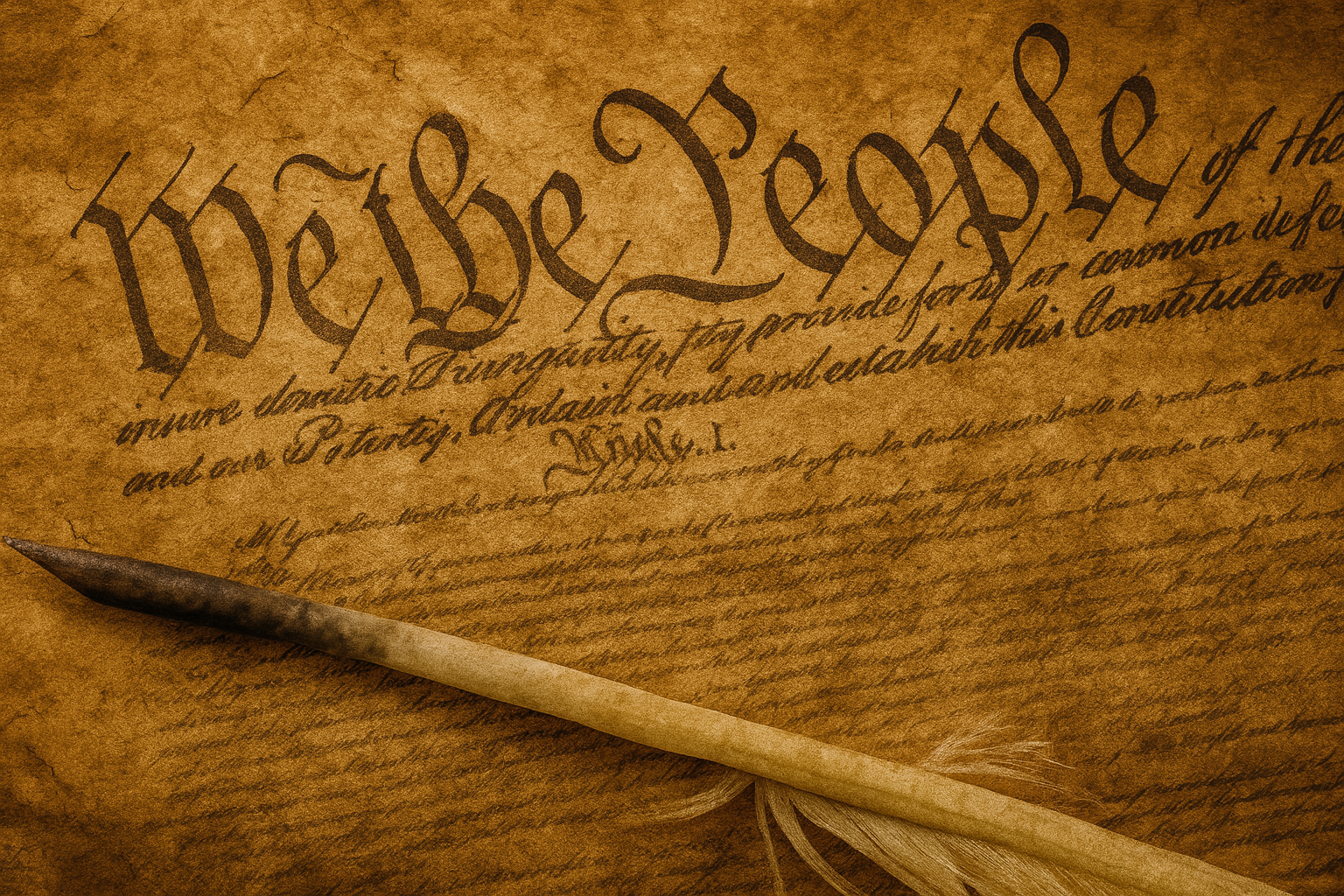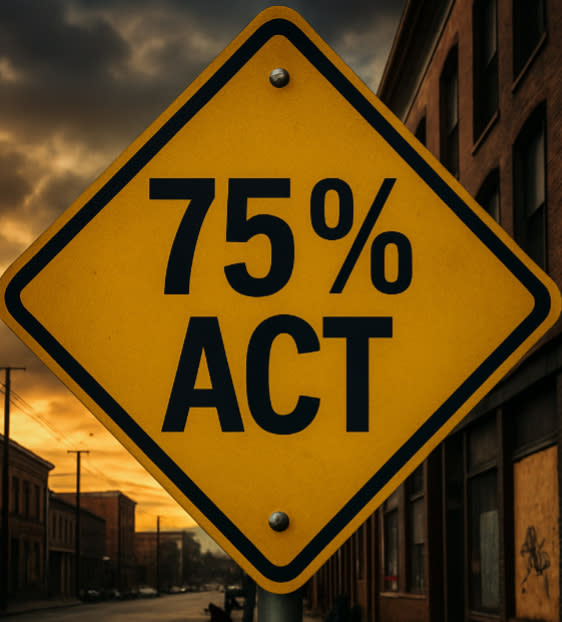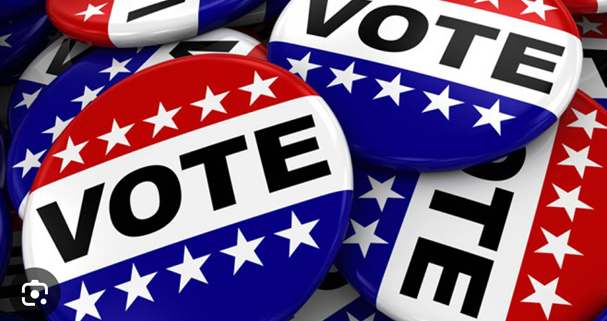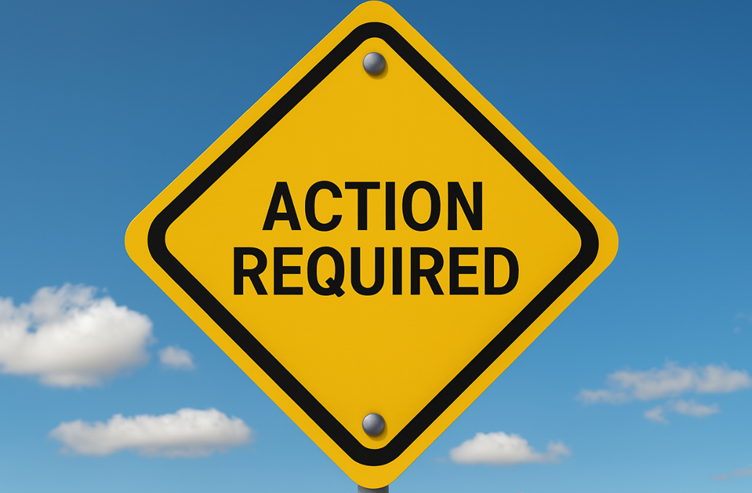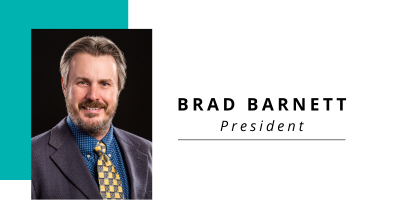LET THE PEOPLE DECIDE - AGAIN
|
Rolling Out the 'Prop 1 - 75% Act'
The Spokane Public Safety, Health, and Jobs Amendment (DRAFT)
|
This past Monday, the Spokane City Council passed the Mayor’s ordinances on homelessness. These laws have been years in the making. But after all the debate, what passed was deeply disappointing. The final ordinances remove meaningful enforcement tools, fail to interrupt life-threatening street conditions, and offer no clear pathway for change.
The City's new ordinances repeal the “sit and lie” rules overwhelmingly supported by voters under Proposition 1. Worse, they severely limit the City’s ability to use laws such as obstruction or unlawful camping as engagement pathways—tools that could otherwise redirect individuals into shelter, treatment, or services. As written, the new ordinances effectively tie the hands of law enforcement, outreach teams, and health professionals—leaving them powerless to act unless someone is already in crisis.
Meanwhile, Spokane now ranks first or second in the nation for per capita overdose deaths. That tragic standing is likely to worsen.
|
Introducing the Prop 1 - 75% Act
|
The Spokane Business Association (SBA) and its associates have been working to craft a lasting solution that restores the will of the voters while addressing the urgent challenges facing our city. Today we are introducing a draft City Charter Amendment known as the Spokane Public Safety, Health, and Jobs Act—or the Prop 1 – 75% Act. It is named in honor of the 75% of Spokane voters who approved Proposition 1 in 2023—a voter mandate that was never implemented and ultimately overturned by the courts on procedural grounds.
This amendment is not a symbolic gesture. It is a structural and constitutional-level correction to a system that has failed both public safety and human dignity.
Why a Charter Amendment?
Because a city ordinance can be deprioritized, reinterpreted, or ignored. A Charter Amendment cannot.
Ordinances can be changed by a 4–3 City Council vote. A Charter provision can only be changed by a public vote—and it overrides all conflicting ordinances or policies.
A Charter Amendment is the most powerful tool Spokane residents have. It binds current and future officials. It carries the force of law. And it can be enforced in court if the City refuses to act.
This is not a resolution or policy preference. It is a public mandate made permanent, designed to restore both order and compassion in our public spaces.
|
What the 'Prop 1 - 75% Act' Does
|
The full draft is attached, but here are the highlights:
- Reaffirms the Public Mandate
Under Section 133, the Act affirms that enforcement and compassion are not contradictory. They are mutually reinforcing duties of a just and functional city.
- Prohibits Dangerous and Disruptive Behavior
Section 134 clearly defines illegal drug use, obstruction, unauthorized camping, and aggressive behavior as citywide violations.
- Requires Active Enforcement
Section 135 mandates visible, consistent enforcement—especially in areas like the Downtown Core.
- Restores the 1,000-Foot Buffer from Prop 1
Section 136 reestablishes a 1,000-foot no-encampment zone around schools, parks, playgrounds, and licensed childcare centers—the exact core of Prop 1, now with stronger legal backing.
- Guarantees Access to Shelter and Treatment
Section 137 mandates that detox, 24/7 shelter, behavioral health care, and case navigation must be available—not just discussed.
- Defines a New Standard for Accountability
Section 138 goes beyond vague goals. It states clearly:
- If recurring camping, obstruction, or sit/lie behaviors are plainly visible to the public, the City is presumed to be out of compliance.
- This ensures that visible results—not just policy checklists—drive performance.
- Locks in Real Funding
Section 139 guarantees minimum spending on both enforcement
and services, while capturing existing local sales taxes to fund
these mandates—no new taxes required.
|
This is Just the Beginning
|
This is a draft. It will evolve. We are asking for feedback from citizens, neighborhood groups, service providers, and business owners.
This Charter Amendment can go to the voters either:
- By a majority vote of the next City Council (not vetoable), or
- By a citizen-led signature campaign in 2026
Either way, it must go to the people—just as Prop 1 did.
|
Your Voice Is Needed - Read. Respond.
|
Read the draft below.
Share your feedback.
Help us finish what Spokane voters overwhelmingly started.
|
Spokane Public Safety, Health, and Jobs Act
Commonly known as the “Prop 1 – 75% Act”
Spokane City Charter Amendment
Article XVIII – Enforcement of Prohibited Behaviors on City-Owned Property
Section 133 – Title and Purpose
This Article shall be known and may be cited as the Spokane Public Safety, Health, and Jobs Act, hereafter referred to as the 75% Act, referencing the nearly 75% of Spokane voters who approved Proposition 1, a 2023 ballot measure that prohibited encampments near schools, parks, and child care centers, and was later invalidated by the Washington State Supreme Court on procedural grounds. This Act restores the will of the voters by reestablishing enforceable standards by City Charter Amendment, while also ensuring access to effective, accountable support services.
The people of Spokane affirm that publicly owned spaces and public rights-of-way in our city must be clean, safe, and accessible to all—residents, workers, families, and visitors alike. We also affirm that effective, accountable care for individuals suffering from addiction, mental illness, or chronic homelessness are fundamental civic responsibilities.
This Article rests on the belief that enforcement of public safety laws and provision of shelter, treatment, and support services are not opposing goals, but mutually reinforcing duties of a compassionate, just and functional city.
This Article also affirms that drug addiction is a medical condition and that enforcement related to substance use must be designed to interrupt cycles of harm and connect individuals with medical treatment, behavioral health services, and long-term recovery pathways.
Accordingly, the City of Spokane shall:
- Uphold the public’s right to safe, obstruction-free public spaces; and
- Act with care and urgency to ensure individuals in crisis are met with real opportunities for recovery, shelter, and stability.
Section 134 – Prohibited Behaviors
The following behaviors are prohibited on all public property of the City of Spokane and will be enforced city-wide. This list does not preclude enforcement of other applicable local, state, or federal laws.
- Use, possession, or distribution of illegal drugs or controlled substances
- Loitering with the intent to use, distribute, or facilitate the sale or transfer of illegal drugs
- Unauthorized camping, or habitation in public spaces or placement of tents/shelters, including accumulation or storage of belongings that obstruct public access or create safety hazards
- Obstruction of sidewalks, rights-of-way, building entrances, or business access points
- Aggressive or intimidating behavior, including harassment, intimidation, or verbal abuse directed at pedestrians, business patrons, employees, or public officials
Section 135 – Enforcement
The City shall actively enforce all prohibited behaviors listed in Section 134.
Law enforcement officers shall retain discretion to issue citations or initiate custody when individuals decline alternative pathways or pose a continuing public safety risk.
In Designated Enforcement Zones, including the Downtown Core, the City shall ensure regular, visible enforcement presence, including foot patrols and other community-oriented policing strategies, sufficient to deter prohibited behaviors defined in Section 134.
Section 136 – Citizen-Defined High Priority Zones
All prohibited behaviors listed in Section 134 shall be enforced city-wide. In addition, the following public spaces shall be designated as High Priority Public Health and Safety Zones, where enforcement shall be prioritized:
It shall be unlawful to engage in any of the prohibited behaviors described in Section 134 on any public property within 1,000 feet of:
- Any public or private K–12 school
- Any public park
- Any public playground
- Any licensed child care or early learning facility
The City shall ensure visible, routine enforcement in these zones and shall prioritize engagement and outreach efforts to connect individuals with shelter, treatment, and support services in compliance with Section 137.
Monthly reporting on enforcement actions and service referrals in these zones shall be published by the City’s Office of Neighborhood Services, in collaboration with the Spokane Police Department.
Section 137 – Access to Shelter and Treatment
In furtherance of the legislative intent set forth in Section 133, and specifically with respect to the care for individuals suffering from addiction, mental illness, or chronic homelessness, the City shall ensure the following services are consistently available, either directly or through contracted providers:
- 24/7 low-barrier shelter
- Detoxification services, including medication-assisted treatment (MAT)
- Behavioral health services
- Case navigators for long-term support and recovery
Section 138 – Oversight, Reporting, and Accountability
The implementation of this Article is expected to evolve based on data, observed outcomes, and emerging best practices. Accordingly, the City shall ensure transparent, regular public reporting and evaluation of enforcement efforts, service coordination, and program outcomes.
For purposes of performance evaluation, the City shall be presumed to be in noncompliance with this Article if, in any designated enforcement zone, an objectively reasonable person would observe recurring on-street camping, obstruction of public rights-of-way, or sit/lie behaviors in violation of Section 134.
The City shall include in its quarterly public reporting a narrative and visual summary of whether the conditions in designated zones reflect material and sustained enforcement of this Charter Article. Absence of visible improvement over time may be cited as evidence of noncompliance.
Section 139 – Implementation and Funding Priority
The Mayor, City Council, and all relevant departments and agencies are hereby directed to ensure full and timely implementation of this Article. No agency, office, or official of the City shall delay, disregard, or deprioritize its requirements.
The City shall allocate funding sufficient to fulfill the mandates of this Article, and such funding shall be treated as a budgetary priority within the City’s regular budgeting and financial planning processes.
- To fulfill the mandates of enforcement in Sections 134 through 136, the City shall allocate no less than 2.5% of the General Fund from the immediately preceding fiscal year, unless waived by a two-thirds Council vote based on verified fiscal analysis showing full enforcement outcomes at a lesser cost.
- To fulfill the mandates of treatment and shelter in Section 137, the City shall allocate at least 2.5% of the General Fund (equivalent) from any available funding source.
Additionally, the following revenue streams shall be applied as follows:
- Public Safety Sales Tax (1/10th of 1%): All revenues generated from the 2023 voter-approved public safety sales tax shall be allocated exclusively to enforcement-related operations under this Article.
- Affordable Housing Sales Tax (HB 1590 – 1/10th of 1%): All eligible revenues authorized under RCW 82.14.530 shall be directed to treatment, shelter, and recovery services under Section 137, to the maximum extent allowed by law.
Section 140 – Definitions
“Obstruction of a publicly owned space or public right-of-way” means any act, condition, or behavior that would cause an objectively reasonable person to feel unsafe, unwelcome, or unable to pass freely without fear, intimidation, or substantial discomfort.
“Obstruction” includes but is not limited to:
- Physical barriers (possessions, tents, carts, bodies)
- Aggressive, erratic, or volatile behavior
- Conditions that render public spaces functionally inaccessible, even if technically passable
In interpreting “obstruction” reference shall be given to the guidelines for wheelchair access promulgated under the Americans with Disabilities Act.
“Publicly owned space” means any property, right-of-way, sidewalk, parkland, or facility owned, maintained, or controlled by the City of Spokane, including those intended for public access, transportation, recreation, or governmental function.
“Foot patrol” means an enforcement patrol conducted by law enforcement or designated personnel on foot, intended to ensure visibility, approachability, and timely response to prohibited behaviors in designated zones.
“Camping” means the placement of any tent, shelter, bedding, or the accumulation of belongings in a manner that indicates overnight habitation or extended presence in a public space.
“Unauthorized habitation” means the act of residing, sleeping, or otherwise establishing dwelling behavior on public property without legal right, permitted shelter assignment, or time-limited public accommodation.
“Aggressive behavior” includes conduct that a reasonable person would find threatening, such as yelling, blocking passage, making menacing gestures, or persistently following individuals in public spaces.
“Enforcement zone” means any geographic area defined in Section 136 for elevated, proactive enforcement and monitoring.
“Actively” means to make an immediate determined effort
“Recurring” means the continued presence of prohibited behaviors in a manner that is plainly observable to the public and would lead an objectively reasonable person to conclude that enforcement provisions under this Article are not being meaningfully carried out in a given enforcement zone.
Nothing in these definitions shall be construed to limit constitutionally protected free speech or lawful assembly.
Other key terms, including classifications of enforcement (e.g., misdemeanor), shall be defined by ordinance or administrative rule consistent with this Charter Article.
Section 141 – Legal Compliance and Severability
This Article shall be interpreted and enforced in accordance with all applicable state and federal laws, including protections under the Eighth and Fourteenth Amendments to the United States Constitution and relevant judicial rulings.
If any provision of this Article is held to be invalid or unconstitutional, the remaining provisions shall remain in full force and effect.
|
|

